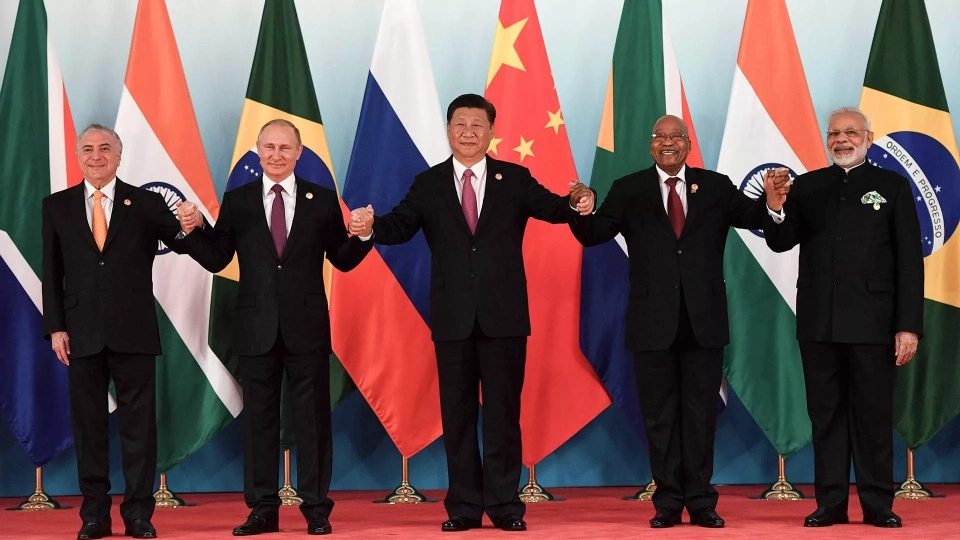Foreign Policy: The USA is Losing Influence Over BRICS Countries
In recent years, there has been a noticeable shift in international relations. The BRICS group, consisting of ten countries including Brazil, Russia, India, China, and South Africa, is gaining increasing influence, controlling about a third of the world's GDP and nearly half of the planet's population. The main goal of the bloc is to provide countries of the Global South with more influence on the world stage.
Although at first glance BRICS can be considered an anti-Western alliance, it did not originally position itself as a counterbalance to the US and its allies. Many countries in the bloc have had close ties with Washington for a long time, including trade with Brazil and defense cooperation with India.
However, over the past decade, there has been a sharp change: China and Russia have intensified their efforts to draw the other BRICS countries to their position, which contradicts US interests. For example, China has become Brazil's main trading partner, and Russia has increased oil supplies to India. Both countries seek to strengthen political ties with South Africa, viewing it as an ally in the fight against the "colonialism" mentioned by Russian President Vladimir Putin.
Meanwhile, the United States is worsening its relations with BRICS countries. Ties with India are currently the weakest since 1998, when Washington imposed sanctions on the country for nuclear tests. In September, Deputy Secretary of State Chris Landau stated that relations between the US and Brazil are at "the darkest point in two centuries." Relations with South Africa have also reached their lowest point since 1994, when apartheid ended in the country.
Despite various reasons for the deterioration of relations, many of the US's grievances against Brazil, India, and South Africa, which play a key role in shaping the world order, are partially justified. However, the Trump administration significantly exacerbated the situation by acting against US national security interests.
As a result, a new risk has emerged: BRICS could become a more active and openly anti-Western bloc, led by China and Russia. If the US does not change its policy in the near future, it may face serious consequences.
CRISIS IN RELATIONS
By 2025, both Democrats and Republicans generally agree that strengthening US-India ties is a strategically sound move. India could serve as a counterbalance to China's growing influence in the Indo-Pacific region and offers significant benefits for American business as one of the fastest-growing economies in the world.
Relations that were strained during the Cold War began to improve at the end of the Clinton administration and have steadily developed under each subsequent US president and Indian prime minister. In 2008, the US and India signed a historic deal that ended India's long-standing nuclear isolation and opened it up to civilian nuclear trade, despite uncertainties surrounding the Non-Proliferation Treaty. In the following years, the parties signed arms supply contracts worth about $20 billion, and in 2016 India was granted the status of a "major defense partner" of the US.
During his first term, Donald Trump established warm relations with Prime Minister Narendra Modi. In 2017, Washington revived the "Quad" — a coordination format for security issues in the Indo-Pacific region involving Australia, India, Japan, and the US. The Biden administration continued to develop this cooperation, initiating a technological partnership that deepened defense cooperation between the countries. After Trump's re-election, Modi was one of the first world leaders to visit the White House.
However, then a sharp turn occurred.
Trump caused discontent in New Delhi by claiming that he "stopped" the conflict between India and Pakistan in Kashmir in May 2025 — a statement that the Indian side refuted. He also invited the chief of staff of the Pakistani army to the White House. According to The New York Times, Trump no longer intended to participate in the "Quad" summit scheduled for November in New Delhi, and the summit itself was called into question.
Negative trade measures followed. The Trump administration imposed 50% tariffs on goods from India, including an additional 25% "in punishment" for purchasing Russian oil, and threatened to impose a 10% tariff on all countries that Washington believes support BRICS's "anti-American policies." India responded by calling these measures "unfair and unjustified" and began to deepen its engagement with Russia and China. In August, New Delhi and Moscow agreed to expand bilateral trade, and in September Modi visited China for the first time in seven years to participate in a Shanghai Cooperation Organization meeting, where he interacted with both Putin and Xi Jinping.
Relations between the US and Brazil were not as ambitious as with India but also held strategic value. Trade and investment ties strengthened, and in 2024 the US had a positive trade balance of about $6.8 billion. For decades, the countries have cooperated in security and drug enforcement, signing several agreements on defense technologies. During Trump's first term, he established close personal ties with then-President of Brazil Jair Bolsonaro, and Washington granted Brazil the status of a major non-NATO ally.
However, Trump's return to power also changed the dynamics of relations, and this time — for the worse.
The cause of discontent was the actions of the US in response to the Brazilian authorities' decision to prosecute Bolsonaro for attempting a coup after the 2022 elections. This triggered painful associations for Trump with his own legal troubles following the Capitol riot by his supporters in January 2021. In July of this year, the Trump administration raised import tariffs on Brazilian goods to 50%, stating that it was related to the "witch hunt" against Bolsonaro. The White House also invoked the "Magnitsky Act" and imposed sanctions on Brazilian officials involved in the prosecution of the former president, including a Supreme Court judge and his spouse.
US relations with South Africa have a longer history of tension and are not limited to Trump. Pretoria positions itself as a defender of human rights but often condemns the actions of the US and its allies while ignoring violations by China and Russia. For example, South Africa accused Israel of genocide in Gaza at the International Court of Justice but repeatedly abstained from voting on UN resolutions concerning the war in Ukraine, which irritated Washington. In 2023, the US ambassador in Pretoria accused South Africa of allowing a US-sanctioned Russian ship to pick up weapons at a South African naval base. In 2024, a bill was introduced in the US Congress to reassess US-South African relations — a rare signal of widespread bipartisan dissatisfaction with Pretoria.
Since Trump's re-election, relations have worsened even further. He accused South Africa of "genocide against white farmers," a claim that many experts consider unfounded, and introduced a priority asylum route for Afrikaners, effectively suspending the acceptance of refugees from other countries. In March, his administration expelled the South African ambassador to the US for stating that Trump's political movement "feeds on the instinct of white supremacy." In May, Trump showed South African President Cyril Ramaphosa a video of violence against white farmers and handed him newspaper clippings describing "death and horror for white South Africans." In August, he imposed 30% tariffs on South Africa.
BRICS: NEW CHALLENGES
There are grounds for US criticism of Brazil, India, and South Africa.
India adheres to a protectionist trade policy, with an average tariff level of about 12 percent. After the onset of Russian aggression against Ukraine, India significantly increased its purchases of Russian oil, taking advantage of discounts caused by sanctions.
Brazil claims that the responsibility for the conflict lies with both Russia and Ukraine; seeks to reduce its dependence on the US dollar; criticizes Washington for its sanctions pressure on Venezuela; and openly speaks about the need for a "new geopolitics," in which the US plays a less dominant role.
South African officials emphasize the need to free themselves from the "unjust world order" imposed by the West and maintain close ties with Beijing and Moscow, as well as with the Hamas movement.
Nevertheless, attempts to push these wavering states away from the US may prove unwise. China and Russia are actively seeking to strengthen their influence over them. Brazil, India, and South Africa find themselves between two centers of power: on one side, a relatively liberal bloc led by the US, and on the other, a revisionist axis including China, Iran, North Korea, and Russia.
It is unlikely that Washington will be able to fully "pull" these countries to its side: they prefer a multi-vector approach, maintaining relations with both China and Russia, as well as with the US. However, if the United States continues to irritate and punish them, these states will drift away from Washington.
It is in the US's interest that there remains a factual split within BRICS into two camps: one — China and Russia, openly opposing the US, and the second — Brazil, India, and South Africa, which do not necessarily have to automatically oppose Washington. If BRICS is polarized in this way, it will be less inclined to present a united front against American interests.
However, if the influence of China and Russia increases, the US positions will weaken. For example, BRICS may begin a coordinated campaign for de-dollarization of trade and the creation of alternative payment systems, which would undermine the global dominance of the American financial system and reduce the effectiveness of Washington's sanctions. If BRICS countries invest more actively in their institutions, such as the New Development Bank and the Contingent Reserve Arrangement, then financial institutions under the auspices of the US and Europe, including the International Monetary Fund, may lose their influence. At the same time, China and Russia will gain more opportunities to expand their influence in the Global South, threatening US interests in these regions.
Instead of pushing these global wavering states away, the United States should establish constructive relations with them.
Washington could cooperate with Brazil in diversifying semiconductor supply chains and countering Chinese influence in Latin America. India remains an important player in the Indo-Pacific region, and the US should use the "Quad" as a tool for balancing Chinese power. A trade agreement with Pretoria could encourage South Africa to coordinate more closely with Washington in its diplomatic initiatives on the African continent. All three countries possess critically important minerals that could help the US reduce its dependence on adversaries.
The irony is that the Trump administration is in a uniquely advantageous position to restore relations. No recent US president has been so free from "policy inertia" and willing to make a sharp course change. The same administration that recently supported India is now sharply criticizing it. American foreign policy is changing rapidly today.
However, even if the United States can improve relations with Brazil, India, and South Africa, some damage has already been done. The memory of Washington's unpredictability does not fade quickly. India is a vivid example. It took decades to overcome the mutual distrust of the Cold War era. Indian politicians still remind American diplomats of the US's support for Pakistan in the Indo-Pakistani war of 1971 and the naval group sent to the Bay of Bengal. Even if the current administration in Washington changes course, no multi-vector state will rush to "bet everything on the United States."
Nevertheless, this is no reason to abandon attempts.
If Washington cannot at least somewhat improve relations with Brazil, India, and South Africa, Beijing and Moscow will gladly celebrate their success.
Read also:

Why BRICS is Strengthening Despite US Threats
Since its inception, BRICS has not lost a single member; on the contrary, its membership has only...
Trump wants to involve China in resolving the conflict in Ukraine
During his Asian tour, which begins in Malaysia, U.S. President Donald Trump informed reporters...

Kyrgyzstanis Invited to Ufa for the Youth Forum of BRICS and SCO Countries
The first youth forum of BRICS and SCO countries is taking place in Ufa from July 26 to 29, with...
"BRICS IMF 2025 – a platform for international cooperation at the regional level of BRICS+ countries"
From October 29 to 31, 2025, the International Municipal Forum of BRICS will take place in St....

The International BRICS Municipal Forum Will Take Place in St. Petersburg
From October 29 to 31, 2025, the international municipal forum of BRICS (IMF BRICS) will take...

Kyrgyzstan Amazed Participants of the SCO and BRICS Festival in Ufa
The cultures of the Bashkir and Kyrgyz peoples are largely similar, and Kyrgyzstanis are very...
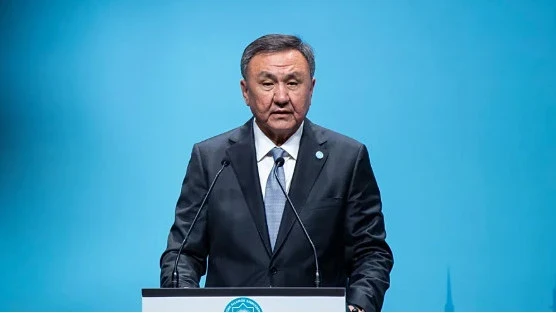
Turkic states seek to strengthen economic and trade ties with the EU, - Secretary General of the Turkic Council Omuraliyev
Kubanychbek Omuraliev The Alliance of Turkic States is becoming an economic power due to growth,...
In 8 months, Kyrgyzstan purchased potatoes from China for $7.7 million
Based on data from the National Statistical Committee, during the first eight months of 2025, China...
Sanctions Against Kyrgyzstan's Banks. The Ministry of Foreign Affairs of the Kyrgyz Republic Proposes to the European Union to Create a Working Group
In its press release, the Ministry of Foreign Affairs of Kyrgyzstan expressed dissatisfaction with...
In Kyrgyzstan, the share of finished products in textile exports already reaches 80% - analysis
- According to information provided by the EDB (October 2025), there is a change in the structure...

International Festival of National Cultures "Berdemlek – Commonwealth"
The International Festival of National Cultures "Berdemlek – Commonwealth" will take...

The 19th Asian Chess Championship for Schoolchildren will be held in Ulaanbaatar
On October 25, the 19th Asian School Chess Championship will kick off at the “Ulaanbaatar” hotel....
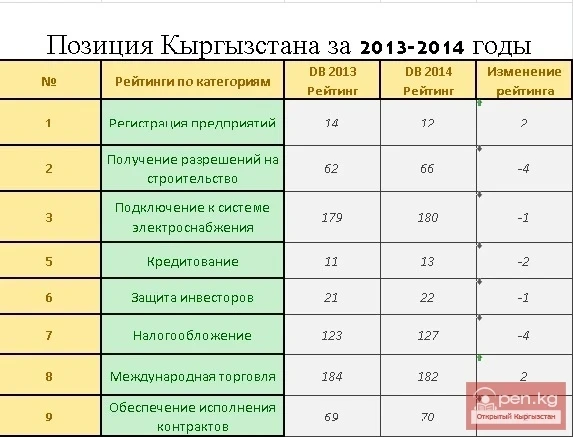
In the Doing Business ranking, Kyrgyzstan surpassed Turkey and China.
In the Doing Business-2014 country ranking, Kyrgyzstan took the 68th position, improving its...
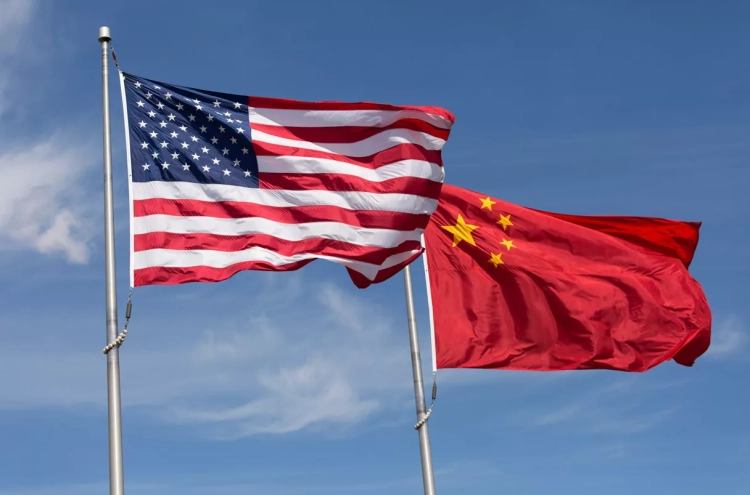
The U.S. is considering additional tariffs on China after new restrictions from Beijing
The flags of the USA and China against a clear sky symbolize the relationship between the two...

More than $5.5 billion: Russia provided assistance to Central Asian countries
After the denunciation of agreements on the construction of hydropower plants in Kyrgyzstan by...

"‘We will destroy’: Trump promised to kill those who bring drugs into the USA"
Photo from the internet. Illustrative photo President Donald Trump announced that the United...

How Will the New EU Sanctions Against the Banks of Three Central Asian Countries Affect Them
On November 12, a new package of sanctions from the European Union will come into effect,...
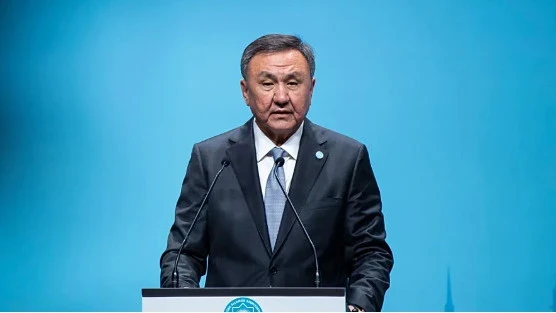
Turkic states aim to strengthen economic and trade ties with the EU, - CSTO Secretary General Omuraliyev
Kubanychbek Omuraliyev Omuraliyev also emphasized that the combined GDP of Turkic-speaking...

Zelensky: Russia Launched Nearly 1200 Drones at Ukraine in a Week
Ukrainian President Volodymyr Zelensky reported that the aftermath of the nighttime Russian attack...
Kyrgyzstan Could Transition from a Landlocked Country to a Transit Country, According to an Expert
Igor Golubev, Deputy Head of the Association of International Freight Transport, proposed a new...

Iran is considering joining the EAEU.
Iran is considering the possibility of joining the Eurasian Economic Union and also intends to...
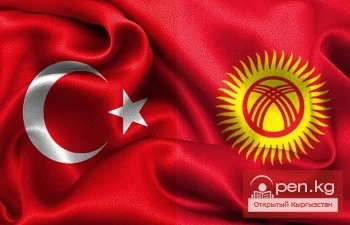
Between Two Fires
After the Turkish Air Force shot down the Russian bomber Su-24, which was participating in the...
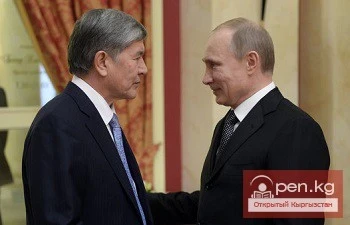
Vladimir Putin: "Kyrgyzstan is our reliable partner"
During the Moscow meeting between the President of Kyrgyzstan Almazbek Atambayev and the head of...

Russia will support all countries that request assistance in the fight against ISIS.
Russia does not plan to send troops to Syria to fight ISIS; however, such assistance may well be...
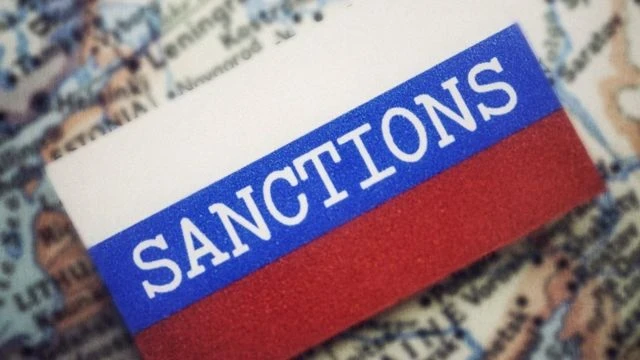
The EU has approved the 19th sanctions package against Russia. It will affect gas, cryptocurrency, and Central Asian banks.
At the summit held in Brussels, the leaders of the European Union countries approved the 19th...
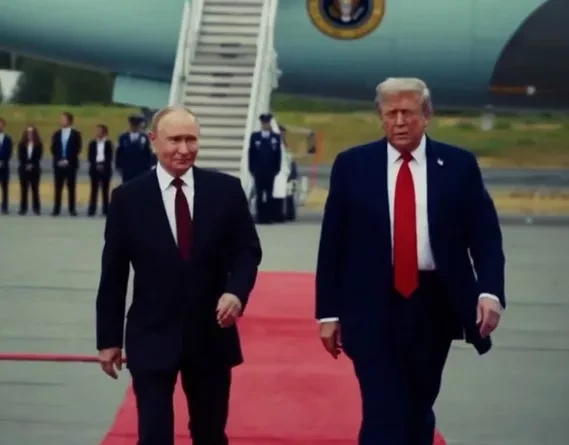
Putin promised to respond "stunningly" to possible Tomahawk missile strikes on Russia
Putin also commented on rumors about possible deliveries of Tomahawk missiles to Ukraine, calling...
Trump reminded Russia of the American nuclear submarine off its shores
In response to the recent tests of the Russian intercontinental cruise missile...

Countries that Established Diplomatic Relations with the Kyrgyz Republic
List of Countries that Established Diplomatic Relations with the Kyrgyz Republic...
In 8 months, cabbage exports to Russia decreased by 3.6 times
- According to data from the National Statistical Committee, cabbage exports to Russia fell by 3.6...
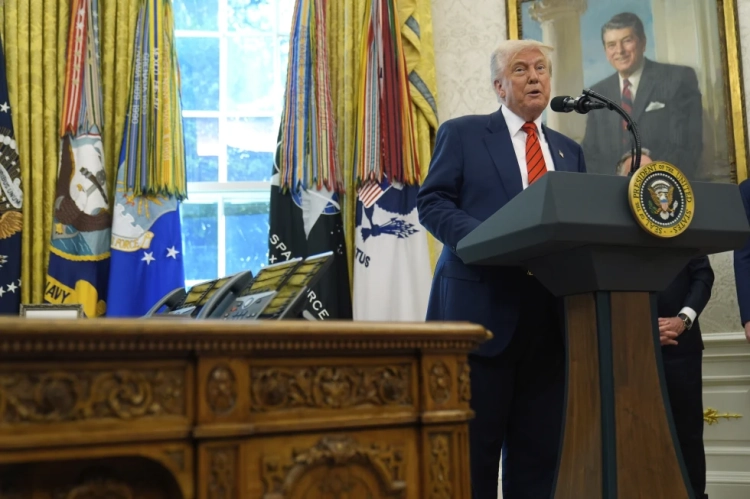
Trump stated that he advised India not to go to war with Pakistan
At the event dedicated to the Diwali holiday at the White House, U.S. President Donald Trump made...
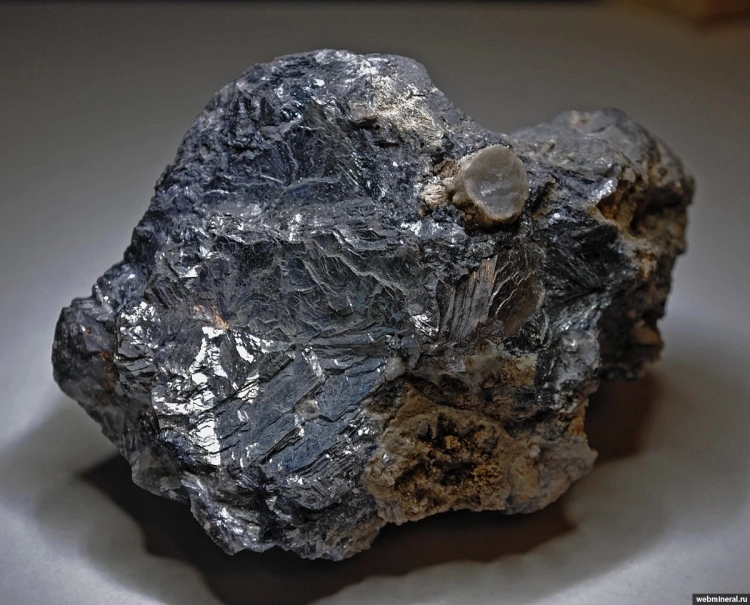
In Tajikistan, about a quarter of all antimony in the world is mined. The extraction is carried out in collaboration with China.
The increase in demand for antimony is driven by the development of high technologies, where it is...
Kyrgyzstan Increases Production of Eggs and Poultry Meat, - Ministry of Agriculture
The volume of egg and poultry meat production in Kyrgyzstan is showing positive dynamics. On the...
The Economy of Kyrgyzstan Will Grow Faster than All Central Asian Countries, but the Risks Are Too High
The IMF has presented its growth forecast for economies around the world, including the Middle East...
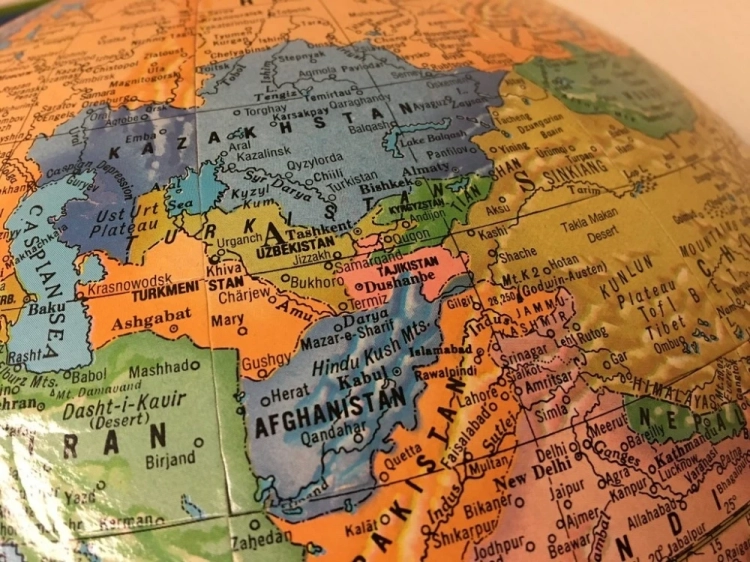
India and Central Asia: 6 Steps to New Cooperation
Central Asia has significant geo-economic potential for India due to its strategic location, which...
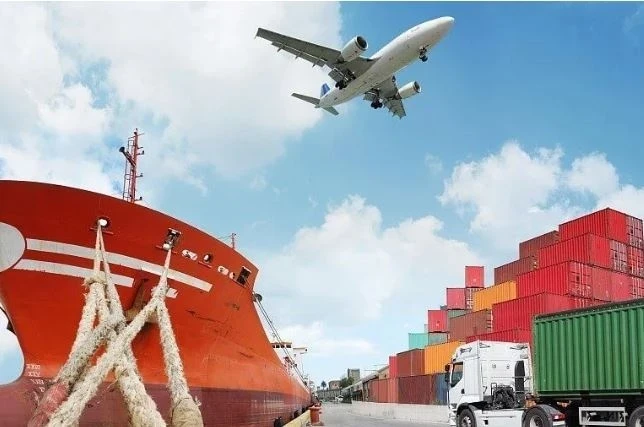
The Ministry of Transport of the Kyrgyz Republic commented on the statements of expert Andrei Belov
In his article, Belov pointed out that significant changes occurred in the freight transportation...

Women of Kyrgyzstan Demonstrate a Strong Position Without Gender Discounts
A conference was held in Bishkek dedicated to the results of the Global Women's Summit, which...

Turkish media reacted to the criminal case against blogger Aziz Hakimov
A criminal case has been initiated against blogger Aziz Hakimov, known by the pseudonym Comrade...
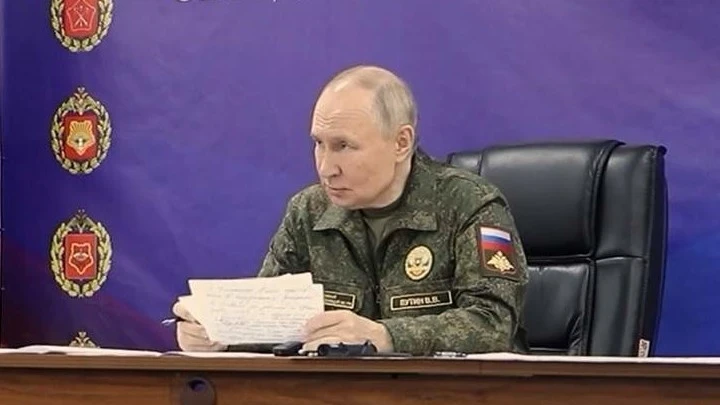
Putin: Russia conducted tests of the "Burevestnik" — a cruise missile with a nuclear power system
Russian President Vladimir Putin announced the testing of the 'Burevestnik' cruise...
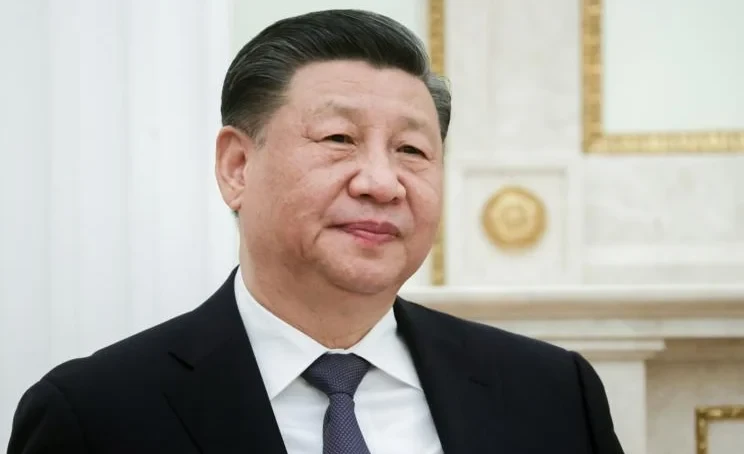
Xi Jinping to Visit South Korea
From October 30 to November 1, the Chairman of the People's Republic of China, Xi Jinping,...

Interesting Facts About the Earth's Population
The Earth's Population This is the total number of people living on our planet. As of today,...

Andrey Krutko: "It's Not Worth Scaring Russia!"
On Thursday, October 15, a press conference was held at the international press center of the...

Pol Kapoor appointed U.S. Assistant Secretary of State for South and Central Asian Affairs
Pol Kapoor has officially become the Assistant Secretary of State for South and Central Asian...
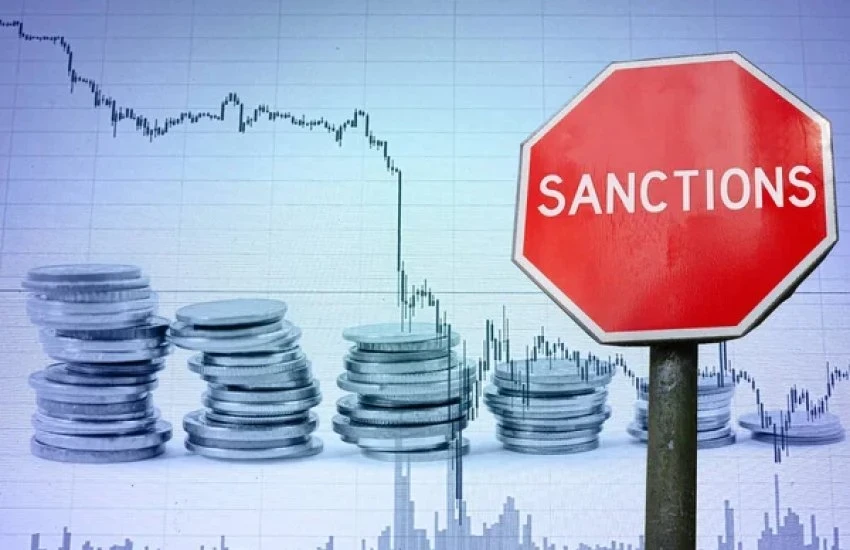
EU sanctions against banks in Kazakhstan, Kyrgyzstan, and Tajikistan. How will this affect depositors and financial operations?
The new sanctions imposed by the European Union affect banks in three Central Asian countries,...
Trump refused to meet with Putin until a deal to end the war is ready
In an interview with journalists in Doha on October 25, Trump stated that he finds it pointless to...
Monuments of Uzgen
Uzgen Monuments The monuments of Uzgen are considered a classic of the Karakhanid era (10th-12th...
